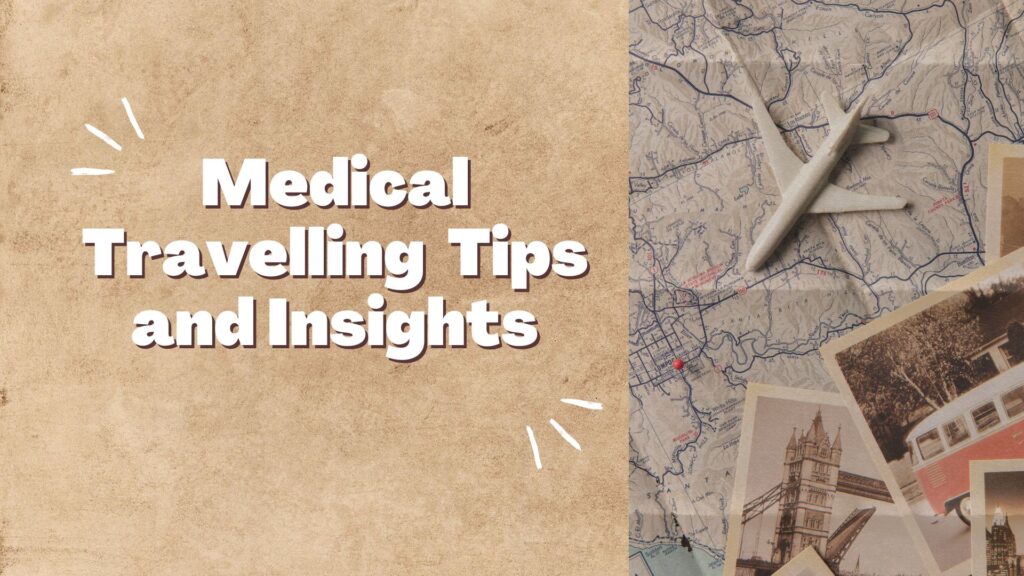Medical tourism has become an attractive option for individuals seeking affordable, specialized, or more timely healthcare treatments abroad. Combining medical care with travel requires careful planning, as it involves a unique set of considerations compared to traditional trips. This guide provides practical tips and insights to ensure you are well-prepared for the journey.
1. Research the Right Destination and Facility
Choosing a Destination
Different countries are known for excelling in specific medical procedures. For example:
- India is renowned for advanced cardiac surgery and orthopedic care.
- South Korea specializes in cosmetic and reconstructive procedures.
- Thailand is a popular choice for dental care and wellness therapies.
When selecting a destination, research its healthcare infrastructure, reputation in your area of need, and overall patient safety standards.
Finding a Medical Facility
- Look for hospitals accredited by international organizations like the Joint Commission International (JCI).
- Read patient reviews to gauge the quality of care.
- Verify the qualifications of doctors and surgeons who will be performing your procedure.
Pro Tip:
Working with a reputable medical tourism facilitator can simplify the process and ensure you choose a reliable provider.
2. Understand Costs and Payment Details
Procedure Costs
While medical tourism is often cost-effective, you’ll need to account for the following:
- Procedure and hospital charges
- Pre- and post-operative care
- Medications and follow-up appointments
Request an itemized estimate to avoid surprises.
Payment Options
- Confirm accepted payment methods (e.g., credit cards, wire transfers).
- Determine if your health insurance covers international medical care.
Pro Tip:
Ask about all-inclusive packages that may include the procedure, accommodation, and local transportation.
3. Prepare for Your Trip
Documents You’ll Need
- A valid passport and visa (if applicable).
- Copies of medical records, including test results and prescriptions.
- Proof of travel insurance with medical coverage.
Health Preparations
- Visit your primary care physician to ensure you’re fit to travel and undergo the procedure.
- Get any required vaccinations or preventative treatments for your destination.
- Complete any pre-procedure medical tests as instructed by the facility.
Packing Checklist
- Comfortable clothes and shoes for recovery.
- Medications and personal health supplies.
- Post-procedure essentials like compression garments or wound care kits.
4. Plan Your Travel Details
Flight Arrangements
- Book direct flights whenever possible to minimize stress.
- Request wheelchair or mobility assistance for added comfort.
Arrival Logistics
- Arrange transportation from the airport to your accommodation in advance.
- Familiarize yourself with the destination’s local transport options.
Pro Tip:
Travel with a trusted companion who can support you emotionally and physically during recovery.
5. The Treatment Process
Before the Procedure
- Meet with the medical team to review your treatment plan in detail.
- Clarify all aspects of the procedure, recovery time, and potential risks.
- Ensure you are comfortable before signing any consent forms.
During the Procedure
Trust that the facility will follow international medical standards. If you have concerns, don’t hesitate to communicate them to your care team.
6. Recovery and Follow-Up
Hospital Recovery
- Remain in the facility for the recommended observation period.
- Adhere strictly to dietary and activity guidelines provided by the medical team.
Outpatient Recovery
- Stay in accommodation near the hospital for easy access to follow-up appointments.
- Monitor your recovery and report any unexpected symptoms immediately.
Pro Tip:
Consider hiring a local caregiver if your procedure requires intensive post-operative care.
7. Overcome Cultural and Language Barriers
Communication
- Opt for facilities with English-speaking staff or access to interpreters.
- Use translation tools to assist with simple conversations.
Cultural Awareness
- Learn about the local culture, customs, and etiquette.
- Dress modestly and respectfully to align with local norms.
8. Returning Home and Aftercare
- Obtain detailed post-care instructions from your medical team.
- Schedule follow-up visits with your primary doctor back home.
- Keep all medical records for future reference.
Traveling for medical procedures requires careful preparation, but with the right approach, it can be a rewarding and cost-effective solution. By researching thoroughly, managing logistics, and staying informed, you can ensure a smooth journey and successful outcome.
FlyGrandest is here to assist you with your medical tourism journey. From choosing the right facility to managing travel logistics, we’re dedicated to supporting your health and well-being every step of the way.

